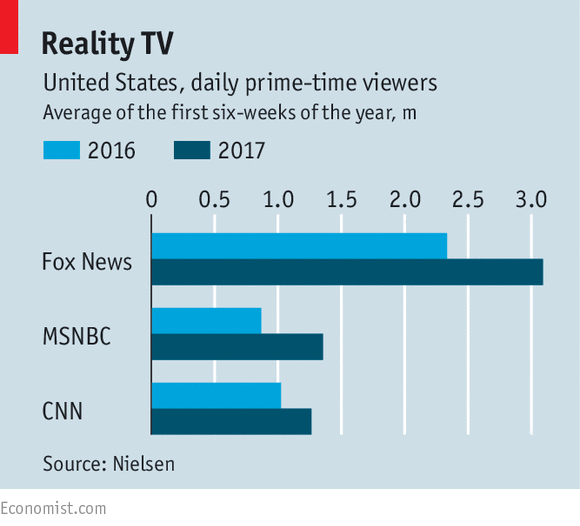
After his meeting with Emmanuel Macron in Versailles, Vladimir Putin gave an
an exclusive interview to Le Figaro's Alexis Brézet and Renaud Girard
(
video) from
a classroom of the Russian cultural center in Paris (translated from the French translation of the remarks in Russian).
Excerpts related to the accusations of the Kremlin's interference in the 2016 election:
Suspicions of Russian interference in the US election campaign have triggered a political storm in Washington. In France, similar suspicions have been expressed. What's your reaction?
The Western press talks about Russian hackers. But where does the idea come from? When President Trump mentioned the situation, he said things that are quite right. Maybe it did not come from Russia, maybe there was someone who inserted a USB stick under the name of a Russian citizen. In this virtual world, today, anything can be done. Russia has never hacked. We do not need it. No interest. What's the point ? I've talked to several American presidents, you know. Presidents come and go, but politics do not change. And do you know why ? Because the bureaucracy in America is very powerful. The person elected has his or her opinions, ideals, visions, but the day after the election, people with briefcases, in tie and suits with white shirts come to explain how to act as a good president. And changing something in this situation is very difficult. I say this without irony.
So, are you saying that this storm in Washington is based on nothing but a fantasy?
Yes, on fantasy. On the desire of those who lost the elections to remedy their situation by accusing Russia of interference. They lost because the winner was closer to the people and had a better understanding of the voters' aspirations. It's hard to admit. One would rather explain and prove to others that the policy followed by the Democrats was the right one, but that someone from outside deceived the American people. That someone rigged the election. But this is not the case. They simply lost: one must know how to recognize one's defeat, and have the strength to do so. Once this is done, it will be simpler to work together. But today, we use the anti-Russian card in Washington, and this is detrimental to international relations. They could of course quarrel among themselves: who is the best? Who is the most intelligent? But hey, it will pass…
Related:
If it weren’t for anonymous sources, it seems
that the media wouldn’t have any sources at all
Nixon and Watergate:
What Do the MSM and History
Books Fail to Tell Us About the 1970s Scandal?
See also:
a Donald Trump interview — on a different subject
("We’re going to make it 10%; Now it’s 35% … this would
be the biggest tax cut in the history of the country …
We want to keep it as simple as possible")
Média
 La vidéo intégrale de l’entretien de Vladimir Poutine au Figaro
La vidéo intégrale de l’entretien de Vladimir Poutine au Figaro
EXCLUSIVITÉ FIGARO LIVE - Après sa rencontre à Versailles avec Emmanuel
Macron, Vladimir Poutine a accordé une interview exclusive à Alexis
Brézet, directeur des rédactions du Figaro, et Renaud Girard,
chroniqueur international au Figaro.

Les souçons d'immixtion russe dans la campagne électorale américaine ont déclenché une tempête politique à Washington. En France, des soupçons analogues ont été exprimés. Quelle est votre réaction ? [22:18]
La presse occidentale a parlé de hackers russes. mais sur quoi se base-t-elle ? Lorsque le président Trump en a parlé, il a dit des choses tout à fait correctes. Peut-être que cela ne venait pas de Russie, mais que quelqu'un a inséré une clé USB avec le nom d'un citoyen russe. Dans ce monde virtuel, aujourdhui, on peut faire n'importe quoi. La Russie n'a hamais fait de hacking. Nous n'en avons pas besoin. Aucun intérêt. À quoi bon ? J'ai parlé avec plusieurs présidents américains, vous savez. Les présidents arrivent et repartent, mais la politique ne change pas. Et vous savez pourquoi ? Parce que la bureaucratie en Amérique est très puissante. La personne élue a son opinion, ses idéaux, sa vision des choses, mais le lendemain des élections, des personnes avec des attachés-cases, des costumes-cravates et des chemises blanches viennent expliquer comment il doit agir en bon président. Et changer quelque chose dans cette situation, c'est très difficile. Je le dis sans ironie.
Cette tempête à Washington serait donc fondée sur une fiction absolue ? [25:22]
Oui, sur de la fiction. Sur le désir de ceux qui ont perdu les élections de remédier à leur situation en accusant la Russie d'ingérence. Ils ont perdu car le vainqueur était plus proche du peuple et a mieux compris les aspirations des électeurs. C'est difficile de le reconnaître. On veut plutôt expliquer et prouver aux autres que la politique suivie par les démocrates était la bonne, mais que quelqu'un de l'extérieur a trompé le peuple américain. Que quelqu'un a truqué l'élection. Mais ce n'est pas le cas. Ils ont tout simplement perdu : il faut savoir reconnaître sa défaite, et en avoir la force. Une fois que ce sera fait, il sera plus simple de travailler ensemble. Mais aujourd'hui, on utilise à Washington la carte antirusse, et ça porte préjudice aux relations internationales. Ils pourraient bien sûr se quereller entre eux : qui est le meilleur ? Qui est le plus intelligent ? Mais bon, cela passera…
Update:
Damien Sharkov reports on the Figaro interview for Newsweek, while
Fox News and
BBC News produced similar reports from St. Petersburg…
 Putin deftly brushed off [NBC reporter Megyn Kelly's] questions about meetings
that members of the Trump campaign – including then-Sen. Jeff Sessions –
had with Russian diplomat Sergey Kislyak.
Putin deftly brushed off [NBC reporter Megyn Kelly's] questions about meetings
that members of the Trump campaign – including then-Sen. Jeff Sessions –
had with Russian diplomat Sergey Kislyak.
“So our ambassador met someone. That's his job.
That's why we pay him,” Putin said, according to a translation. “So
what? What's he supposed to do, hit up the bars?”
He described the focus on Kislyak's contacts as “catastrophic nonsense.”




